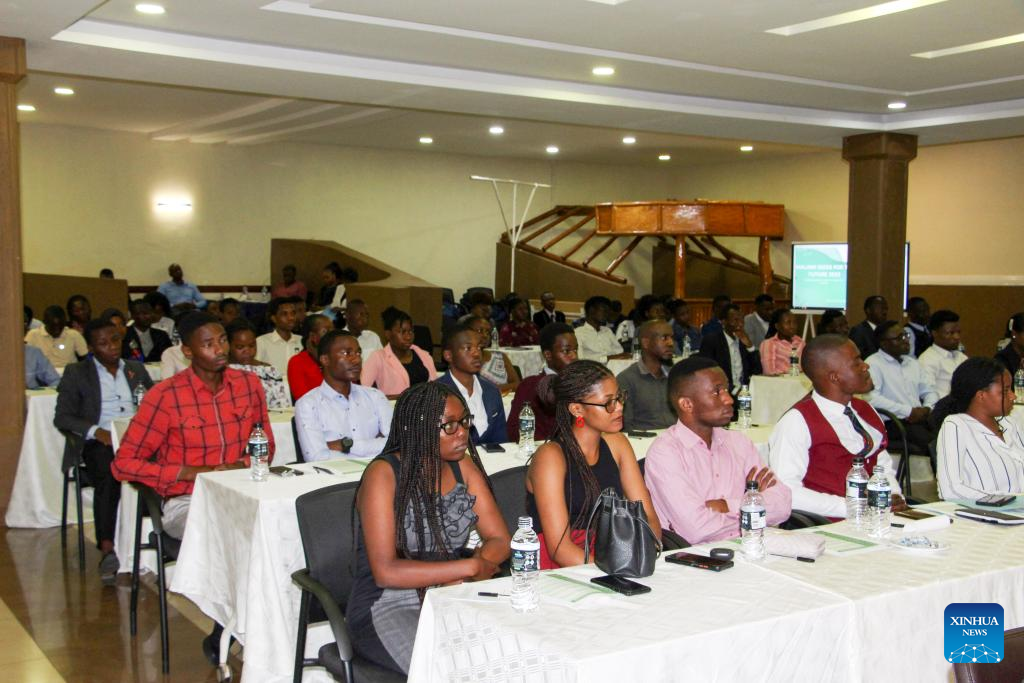Huawei's training program contributes to Malawi's development agenda: minister

Students attend the launching ceremony of the "Seeds for the Future" (SFTF) program in Malawi's capital Lilongwe, on Nov. 20, 2023. Chinese tech giant Huawei launched the 7th SFTF program in Malawi's capital Lilongwe on Monday which will see 50 Malawian youths from universities and colleges trained in information and communication technology (ICT). (Photo by Roy Nkosi/Xinhua)
LILONGWE, Nov. 21 (Xinhua) -- Malawian Minister of Information and Technology Moses Kunkuyu said on Monday that Huawei is a trusted partner and its Information and Communication Technology (ICT) projects contribute to the Malawi 2063 Agenda.
Huawei's program will help close the gap existing among Malawians regarding ICT, thereby making the Malawian government's 2063 development agenda possible, said Kunkuyu.
Huawei Technologies launched the 7th edition of the Seeds for the Future (SFTF) program to provide ICT training for 50 young men and women drawn from 10 public and private universities in the country.
"Malawi Vision 2063 recognizes that our nation's greatest resource and source of wealth are our young people, and thus our goal to digitalize and stay at par with the rest of the world, as far as where ICT is concerned, cannot be accomplished without equipping the youth with the necessary knowledge, skills and competences. This is why revolutionary programs such as Huawei's Seeds for the Future are vital for our country," Kunkuyu said.
The 7th SFTF program will include courses such as 5G, Cloud, AI, Digital Power, and leadership, said Gu Mu, the managing director for Huawei Technologies in Malawi.
"Huawei supports the government's vision and goals by investing in talent cultivation among young Malawians," said Gu, adding that the company aims to provide youth with tools, knowledge, and inspiration to thrive in the digital age.
The SFTF was initiated in Malawi in 2016 and nearly 250 young Malawians have so far benefitted from the project, including 40 Malawian students who traveled to and studied in China.
- Huawei DigiTruck training helps boost income, employment in Kenya
- Chinese tech firm to improve broadband for low-income households in Kenya
- Chinese construction firm in Uganda provides training for local staff
- Huawei launches program to enhance digital skills among Kenyan students
- Huawei teams up with Ethiopian telecom companies for green energy solutions

